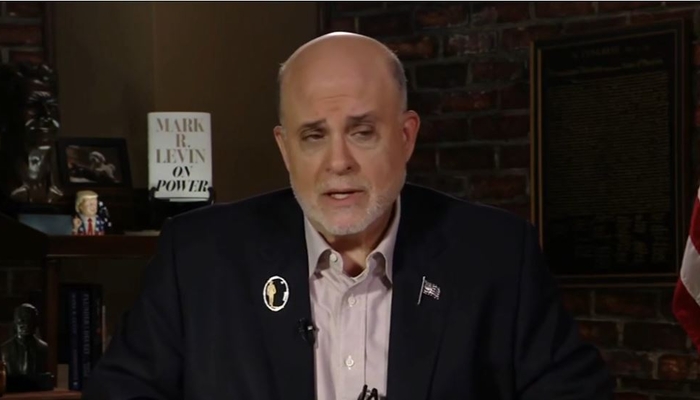


Constitutional scholar and best-selling Author Mark Levin laid out the questions he’d ask James Comey if he could question him regarding the former FBI director’s indictment on charges of making false statements about whether he “authorized” leaks to the media.
Both sides in the case are “hung up” on the technical definition of what it means to “authorize” something, Levin explained in Sunday’s episode of “Life, Liberty and Levin.” But, as Levin noted, the specific language of the statute cited in the case makes “any materially false, fictitious or fraudulent statement or representation” a felony.
Comey is charged with obstruction and with making false statements, under oath, to Congress when he denied any involvement in leaks to the press regarding the investigation of General Michael Flynn in 2017.
“What the government is alleging here is the statement that Comey made [under oath] referencing his ‘Never ever do I deal with the media or talk to the media, leak to the media or unauthorized information to the media,’” Levin said:
“They are saying here that statement was false because James Comey, Jr., then and there, knew he in fact had authorized Person Three to serve as an anonymous source in news reporting regarding the FBI investigation concerning Person One – he knew about it and then subsequently authorized it.”
But, regardless of whether or not Comey gave verbal authorization for the leak - either before or after it took place - his refusal to do anything about it is tantamount to authorization, Levin explained:
“[If] I'm prosecuting this case - there is a lot to go for, by the way, a lot to use – but I would say to Mr. Comey:
“You knew about this? And you didn’t do anything to stop it? Well, then, you authorized it.
“Whether you formally authorized it and used the word ‘authorized’ or used the words ‘I authorize it’ the day after, if you knew about it and you did not stop it, isn't that a problem?
“And if you knew about it, what did you do about it? Did you punish Mr. McCabe? Did you report Mr. McCabe? Or did you never know about it ever? Did you ever even read the article that has your name in it? Did you read it? It has Mr. McCabe's name in it, too. I read it.
“When you read it, what did you say? Did you wonder who leaked it? Did you ask for a leak investigation?”
In any case, ‘This isn’t a man who is clean; it just is not,’ Levin noted:
“There are many questions that could be asked of Comey that relate to this ‘authorization’ issue. He has a bad history of using memos and the press and using a friend and so forth and so on.
“So, when you have people come on and they are saying to you, ‘Oh, the authorization came subsequent, according to McCabe’ – actually, McCabe said more than that.
“He said that Comey was aware of it and a subsequent authorization, which seems like kind of weird wording to me.”
“But, if the director of the FBI was aware of it, and did nothing about it, then I think it can be impliedly said he authorized it,” Levin concluded.
My opening statement on tonight’s Life, Liberty & Levinhttps://t.co/Q9HsdL9rfE
— Mark R. Levin (@marklevinshow) September 29, 2025
